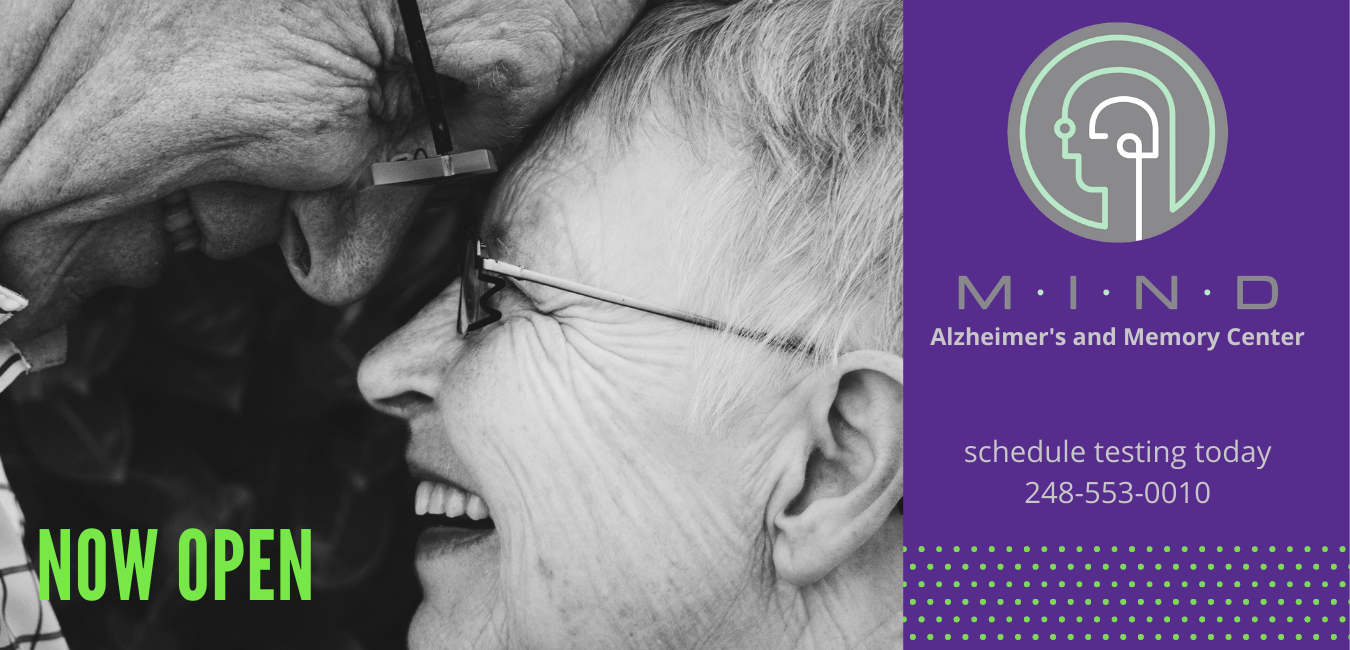- About
- Services
SERVICES
MIND provides individualized, all-in-one care to our patients, from diagnostic tests to services that treat conditions or help manage and improve symptoms, to assisting with emotional and lifestyle needs. A sampling of our services are described below.
- Locations
- Resources
- Headache
Center - MS Center
- Parkinson’s Disease
and Movement
Disorders Center - Careers
Alzheimer’s Disease and Memory Disorder Center
The MIND Alzheimer’s Disease and Memory Disorder Center was launched in 2020. Our goal is to promote the clinical diagnosis, treatment, and education into memory disorders. The most common form of dementia is Alzheimer’s disease. In Michigan, it is estimated that over 190,000 people over 65 have Alzheimer’s disease.
Unfortunately, memory and other cognitive disorders bring hard challenges for patients and their loved ones. Our center’s health care team, led by Director Dr. Jonathan Fellows is dedicated to helping patients and families manage those challenges.
Treatment & Services
Our program begins with a screening to determine the cause of memory loss. This check includes an examination of the patient with a careful review of his or her memory history. The next step is to obtain testing using tools like the Mini-Cog test and the Mini-Mental State Examination (MMSE).
Additional testing may be necessary. Laboratory testing, neuroimaging, and neuropsychological testing is common. In order to make the best treatment choices, we also consider consultation to other specialists to obtain a fully comprehensive review of our patient’s conditions.
Through our comprehensive review, our Alzheimer’s Disease and Memory Disorder Center’s team can identify risk factors for future decline and protective factors that may slow decline in conditions including:
- Alzheimer’s disease
- Mild Cognitive Impairment (MCI)
- Early-onset dementias
- Lewy body dementia
- Frontotemporal dementia
- Progressive aphasia
- Huntington’s disease
- Parkinson’s disease (see Parkinson’s Disease and Movement Disorders Center)
- Brain vascular disease (including stroke)
- Creutzfeldt-Jakob disease
- Traumatic brain injury
- Clinical depression

Our goals are to (1) promote brain function, (2) slow down potential memory loss, (3) reduce changes in behavior and (4) reduce changes in personality (including anxiety and depression).
Finally, our comprehensive approach brings families into the care of their loved one by connecting everyone to much needed resources available to support and help. Schedule a visit at our medical clinic with a neurologist today!
